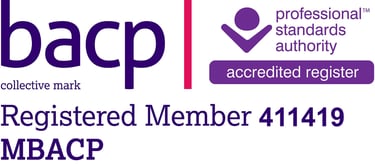Discovering You Are Neurodivergent Later in Life: A New Beginning
Discovering you're neurodivergent later in life? Find clarity and support with counselling in Whitstable. Begin your journey toward self-understanding
David Bushell whitstable counsellor
6/1/20252 min read


Sometimes, understanding that you are neurodivergent comes much later than expected — perhaps in your 30s, 40s, or beyond. Maybe you’ve spent years wondering why some things feel harder, why you tire more easily, or why fitting in has often felt like a struggle.
Whether you’ve recently received a formal diagnosis or you’ve recognised traits in yourself through the growing public awareness, researching or reflection, this realisation can bring a mix of relief, confusion, and even sadness. It’s normal to feel a whole range of emotions as you start to understand yourself in a new way.
For many adults, life before this watershed involved masking or adapting — which is trying to cope with challenges without knowing there was a reason behind them. This effort is exhausting. But now, with your greater awareness, there’s an opportunity to "reframe" experiences and be kinder to yourself and to start living with more ease.
Masking is when you hide or disguise your natural behaviours to fit in with neurotypical social expectations. This might mean copying others, holding back natural reactions, or staying quiet to avoid standing out. You would have developed a tool kit of responses that sometime work and at other times might flunk spectacularly. It often starts as a way to feel safe or accepted, but over time it can leave you feeling exhausted and disconnected. Learning to noticing when you're masking can be a gentle step toward reconnecting with who you really are.
Exploring neurodiverse responses with curiousity helps especially when looking a fresh at the past — reinterpreting old struggles, missed cues, and balancing achievements through a new lens. In the present, this reflection can open up space for compassion and self-understanding, softening how you see yourself today. And looking ahead, it offers the possibility of moving forward with more clarity and confidence, grounded in the knowledge of who you truly are.
Learning to adjust, to truly believing our experiences are valid is why I imagine you are reading this. What matters most is how you choose to care for yourself going forward. Sometimes, that care means reaching out for support, in whatever form feels right for you.
If you find yourself wanting to explore these feelings more deeply or make sense of what this means for your wellbeing, talking with someone who understands can be a helpful step. Counselling offers a safe and supportive space to do just that, without pressure or judgement.
You are not alone on this journey, and it’s never too late to start living in a way that honours who you really are. When you’re ready, reaching out can be the beginning of a new chapter — one where you are seen, supported, and accepted just as you are.
If you’d like to talk more about how counselling can help you navigate this new chapter, please feel free to get in touch
— David
Contact: 07881 820087


